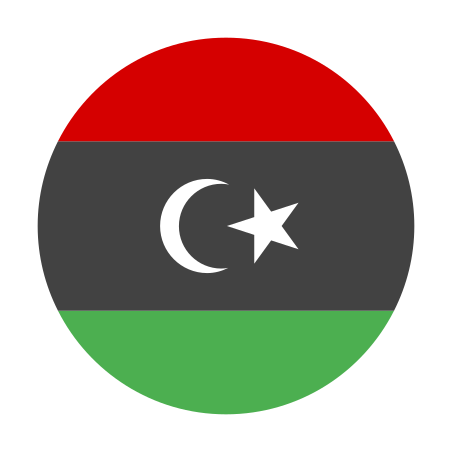Four Questions for Implementing Transitional justice in Libya
Transitional justice and reconciliation are hotly debated topics in Libya. In this piece, Marieke Wierda draws on her experiences in Libya and beyond to propose four key policy questions that may require further discussion in Libya.
Transitional justice has been under discussion in Libya for at least 12 years, starting with the original draft law published by the NTC in 2011. The vision document that was published by the Presidential Council in 2022 is very inspiring and progressive and shows a political commitment that is absent in many countries. Libya's eminent experts have built a lot of knowledge on these issues over the years, and the latest draft reconciliation law has many areas of improvement over earlier versions. Still, four important policy questions may require more discussion in the Libyan context.
First, the vision of reconciliation in the draft law in Libya is rather legal. In its vision document the Presidential Council refers to using the law as the pathway to deal with conflict, in order to have long-term impact. This raises the problem of scale. The mechanisms suggested in the law, and in particular the Truth Commission, are too focused on resolving individual cases. In the case of Libya, both perpetrators and victims of 42 years of dictatorship followed by over 10 years of conflict could be in the hundreds of thousands. It is half a century worth of violations. In general, Transitional Justice should focus on addressing root causes. It cannot address all individual cases. It should focus just on the who and the how, but on the why. The focus should be on structural causes and patterns of violence, or on “incidents” that are important to the collective memory (the Abu Salim massacre being a prominent example). It can also look at groups of victims who were particularly victimized, or regions (groups are referred to in the draft law). This is a different approach than looking at each individual case. It will also require a different way of working and requires significant investigative capacity. It cannot just be left to individuals to come forward.
The vision document of the Presidential Council that “national reconciliation is dependent on members of society’s awareness of the need for it.” This is extremely important. Transitional Justice needs to be primarily a social rather than legal process. The public (including women and youth) must put their trust in the process and the mechanism. Participation is voluntary and should therefore be based on trust. The current vision on appointing a Board of Directors, and the criteria for appointment, are not sufficient to guarantee trust in their independence. In many countries, the appointment process to a TRC makes the difference to it being trusted (a prominent example is the Truth and Reconciliation Commission in South Africa, which was chaired by Bishop Tutu) and not trusted (there are different negative examples of this such as Liberia, DRC). The social stature of persons who are appointed in this role is very important and the appointment process has to be elaborate and transparent, in order to guarantee this trust. A communications strategy for Transitional Justice mechanisms is also very important, including social media.
Secondly, the problem of scale raises particular challenges on reparations. The current law may go too far in raising the expectations of victims. It also leaves too much of the burden of pursuing justice on them. The law implies that victims will be compensated proportionally to their loss, but this will be a huge drain on the Libyan state budget. Again, this raises huge problems of scale. Which victims and how many? For instance, what about all the Law Number 4 victims? Lessons can be drawn from the mechanism that was set up to compensate victims of September 11 in the US. The Sept. 11 Fund had USD 9.4 billion in it (circa), and victims were paid a range of compensation from $500 - $8.6 million each. This is more than victims are likely to receive in Libya. Yet the issue was hugely divisive among victims. How do you value the life of an investment banker against the life of the cook in the restaurant in the World Trade Center who also died? Is earning potential the most important criteria? In this respect, while reparations should be seen to support reconciliation, it is important to be aware of their divisive potential and think of ways in which it can be approached to promote cohesion, including symbolic ways of acknowledging victims in ways that contribute to reparation (memorials, museums, etc.). The current draft law refers to collective reparations which may be a step forward. Libya has its own experience with the divisiveness of compensation, through the Mistrata-Tawergha reconciliation committee. In the end, it did not succeed because the state did not want to fund the compensation that was agreed by the committee.
Thirdly, on criminal justice for (alleged) perpetrators, the problem of scale also applies. It is impossible to try all the perpetrators, since there may be too many. If there is no selection (and no statute of limitations), the courts will become entirely congested with these cases. Many acts qualify as war crimes, and crimes against humanity (which are not a part of Libyan law at the moment) by definition have many perpetrators. In a Transitional Justice process, countries seek to balance accountability and reconciliation, but they can never try everyone who may be guilty of crimes. Even a single trial can be very complicated and last months or years. This is why in different countries there was a choice to focus on those with the most responsibility, and to decline prosecuting other cases (Colombia, Sierra Leone). Amnesty can be a useful tool for reconciliation, particularly for financial crimes. In Libya, some prominent former regime figures were already tried - would they be tried again under this law? That may violate non bis in idem/ prohibition on double jeopardy. These are issues that remain to be resolved.
Fourth, it is important to consider from the outset the issue of capacity. Some countries, including Colombia but also South Sudan, concluded peace agreements that provided for extremely elaborate and complicated Transitional Justice mechanisms. These can be very difficult to implement in practice. In many countries, professionals are not trained on applying transitional justice since these are not part of the ordinary justice system. Conducting investigations for a truth commission, in order to compile a historical record, is a very complicated exercise that requires advanced skills. The same can be said for vetting, deciding on reparations, or conducting prosecutions. While Libya may have many able lawyers, they may not have this specific experience and the process needs much more than lawyers. If the mechanisms cannot be properly staffed, the process will not be professional and fair. It is important to think about starting to build capacity before the process is implemented.
As Libya embarks on the journey of national reconciliation, it will hopefully draw on its own context, in terms of its history, culture and society, to innovate and to adopt unique methods that will make it an example to other countries.




